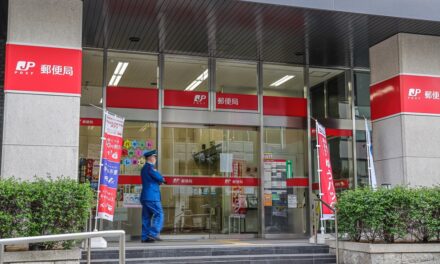
Koizumi gives up on lifting legal ban on post privatization
Prime Minister Junichiro Koizumi has given up on eliminating a legal clause banning the privatization of the new public corporation slated to take over the government-run postal services in 2003, posts minister Toranosuke Katayama said Tuesday.
Koizumi, a strong advocate of the privatization of postal services, recently informed the ministry that he now feels “it doesn’t matter if the clause exists or not,” Katayama said.
The law was passed by the Diet in June 1998 to reorganize the then 22 national government offices into 13 entities.
Article 33 of the law says the planned new postal entity will be exempt from reviews, including privatization.
A bipartisan group of lawmakers, headed by Koizumi, has demanded that the clause be deleted so the issue of thorough privatization of the postal services can be discussed.
Katayama, minister of public management, home affairs, posts and telecommunications, said he has told Koizumi that the existence of the clause does not hinder such discussions since the law has already achieved its purposes.
The massive realignment of national government ministries and agencies took place on Jan. 6, 2001.
Koizumi earlier said that even if the law’s purposes have already been achieved, the wording gets in the way of free discussions on the privatization of the postal services.
Koizumi has long called for privatizing the three postal service operations of mail, postal savings and “kampo” insurance, and wants private firms to enter postal services in concurrence with the 2003 launch of the new public entity.
But some ruling party lawmakers, who have vested interests in postal services, are strongly against the move, and their opposition is preventing the government from submitting bills on the launch of the new entity to the Diet.
It is believed that Koizumi conceded on the issue in order to facilitate the submission of the bills, government sources said.
Shiokawa touts taxes
The proposed public corporation to take over the government-run postal services should not receive any preferential treatment and should pay taxes like other firms, Finance Minister Masajuro Shiokawa said Tuesday.
“If the public corporation makes profits, I think it needs to pay taxes,” Shiokawa told a regularly scheduled news conference. However, that tax may not be levied immediately after the launch of the new body in 2003, he said.
The government is preparing a bill that would establish the public corporation.
Shiokawa also said the public corporation should pay premiums for governmental deposit guarantees.
“I think the public corporation should pay premiums comparable to those of private financial institutions,” he said.
Regarding a new system to be introduced in the current fiscal year under which group companies can opt to pay a unified tax, Shiokawa indicated that an initial surcharge that the business sector wants scrapped is subject to negotiation.
Asked if the government will scrap the 2 percent surcharge on group profits in the first two years of the consolidated tax, Shiokawa said, “We need to monitor developments after the launch of the system.”
Surveys have shown that about 80 percent of companies are hesitant to adopt the consolidated tax because of the surtax.












